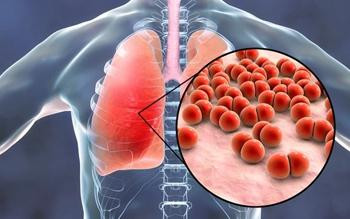Pneumonia is of two types – community-acquired and hospital-acquired. Walking pneumonia, a common term used for atypical pneumonia is a common subtype of community-acquired pneumonia. Bacterium Mycoplasma pneumonia is responsible for causing this type of pneumonia. It is a mild form of pneumonia and might not cause hospitalization. However, around 5-10% of patients with walking pneumonia can develop pneumonia. Hence, if you experience milder symptoms, visit healthcare clinics in Nashville to treat walking pneumonia.
Walking pneumonia can happen at any time throughout the year, but it is pretty common during fall and winter. The main aspect that differentiates 'walking pneumonia' from 'regular pneumonia' is that the former causes milder symptoms and doesn't require bed rest or hospitalization. As a result, patients often didn't recognize they had walking pneumonia. A physical exam or X-ray may help diagnose walking pneumonia. If you have regular pneumonia, a chest X-ray will reveal one part of your lung is affected. On the other hand, for patients with walking pneumonia, a chest X-ray will reveal the affected area as patches that are spread out.
Causes and symptoms of walking pneumonia
The following factors may cause walking pneumonia –
• Bacteria
• Molds (Fungus)
• Viruses
Walking pneumonia may cause the following symptoms
• Sore throat
• Cough
• Sneezing
• Extreme fatigue
• Mild chills
• Low-grade fever
• Chest pain or discomfort
Walking pneumonia is contagious. When a patient with walking pneumonia coughs,, sneezes, or talks, the tiny droplets containing the disease travel in the air. If you or any healthy individual inhales these droplets, they may develop walking pneumonia.
Patients with walking pneumonia stay contagious for 2 to 4 weeks before their symptoms appear. During this period, you may not realize you are infectious or are spreading walking pneumonia. As the symptoms start appearing, you remain contagious till the symptoms end.
Diagnosis of walking pneumonia
To diagnose walking pneumonia, your doctor will perform a physical exam. It involves listening to your chest for the sound your lungs make. Your doctor may also enquire about the symptoms you are experiencing. They may also enquire whether you recently came in contact with people who were displaying similar symptoms. Further, they will prescribe the following diagnostic tests.
• Chest x-ray
• Mucus sample from nose or chest
Treatment of walking pneumonia
Your doctor may prescribe the following medications to treat walking pneumonia.
• Antibiotics – If the bacterium is responsible for your condition, your doctor may prescribe antibiotics. If you start on these medications early, they can help you recover faster. It is better to complete the course of medication, even if you feel better. Otherwise, it may recur and can become challenging to manage.
• Other medicines – If a virus is responsible for causing walking pneumonia, you need to let it run its course. Your doctor may prescribe medication for fever and cold-like symptoms, such as mucus, congestion, and cough.
If you have walking pneumonia, drink plenty of fluid and take adequate rest to feel better.
Prevention of walking pneumonia
The following tips can help reduce the risk of walking pneumonia. Let’s discuss further.
• Eat a well-balanced diet to improve immunity and overall health
• Exercise regularly
• Get adequate rest to improve your body's condition to resist infection.
• Wash your hands often to prevent spreading germs.
• Avoid smoking as it can damage the lungs, which further makes them vulnerable to infection.
• When coughing or sneezing, cover your mouth with a tissue or your sleeve. These are the main ways infections are spread.
• Get your annual flu shot.
• If you have a respiratory condition, it is better to wear a mask around sick people. Otherwise, you are at a greater risk of developing walking pneumonia.
Considering all these aspects can help you prevent walking pneumonia. Don't ignore milder symptoms, as they have the chance of developing into something severe. Visit a family healthcare clinic in Nashville for diagnosis and treatment of walking pneumonia.

